Rumors of Heads Rolling in Russia's Deep State
To converge or not to converge? That is the question that will decide Russia's fate.
As anyone who isn’t totally out of the loop knows, Russia has suffered some serious setbacks in recent months. It turns out that the people in charge of the Kiev operation and the subsequent Donbass campaign messed up and messed up big-time. But, who are these people? It’s certainly not Peskov or Lavrov or Zakharova or any of the outward-facing members of the Russian government. The three aforementioned civil servants have demonstrated time and again that they aren’t in Putin’s inner circle and generally don’t seem to be trusted with important information like, for example, oh I don’t know, the fact that Russia was preparing a surprise military operation. Also, if we apply some logic, for all their faults and ideological leanings, they can’t be blamed for what transpired.
So who, then, was in charge of the Kiev operation? Well, I believe that the evidence that we have so far points to a special department of the FSB being tasked with the special operation. The broader answer, however, includes the Russian Deep State.
Like in America, the public is largely ignorant of who is in the deep state, what their motivations are, and how much power they actually have. The now-classic formulation for explaining the power balance in Russia, which you will be taught in American universities if you study the field, is that there is a balance between the oligarchs and the “siloviks” that runs Russia. I see nothing wrong with this model and it’s widely accepted within Russia by people of all political stripes and persuasions. Now, its hard enough to figure out which oligarch or oligarchic faction is in favor and how much influence they have. But it gets murkier still when we start digging deeper into the siloviks.
I held off on writing about this topic because all I had was some Telegram bloggers to go off of, and it really wasn’t worth my effort to translate their scribbling on the off chance that they might actually have a kernel of truth to them. People are talking about this now because the topic of firings and heads rolling in general has already begun in earnest in Russia. Again, if you think that everything is going fine and according to a 5D plan, then why fix something that isn’t broken i.e., why wonder aloud when the firings will start. And, because things are going according to plan, only British disinfo agents would comment on these rumors to stoke discontent and demoralize the Russian people. But, because we are a bit more discerning on this blog, and we see the setbacks on the front with our own lying eyes, it’s only natural that we would be wondering if anyone will lose their job over this. After all, incompetence has to be punished in any given system whether it be in the corporate world or on the level of geopolitics.
Yesterday, thanks to a commenter, I read this piece of news from The Insider:
[Note: There’s a lot of info in this report, so feel free to just skim it, read my comments and return to the article.]
According to The Insider's sources, the presidential administration is about to undergo a serious shakeup: a number of prominent figures in charge of foreign policy will be leaving their posts. Some of the forthcoming resignations include Yuri Ushakov, Putin's aide in charge of foreign policy; Igor Maslov, head of the Presidential Directorate for Interregional and Cultural Relations with Foreign Countries; Valery Fedorov, overseer of the Transcaucasia; and Filipp Ilyichev, overseer of Africa and Israel. Their activities in recent years have been accompanied by humiliating failures.
Formally, the replacement of some of those individuals can be explained by their age. For example, 75-year-old Yury Ushakov reached the maximum age allowed for a government official to remain in public service five years ago (the fact that, for some reason, has surfaced only recently). “Yuriy Viktorovich does not often appear in his office. You understand, he gets ill now and then. Currently the president needs people who can work hard and offer creative ideas in these uneasy times,” a source in the Presidential Administration explained to The Insider.
More important than Lavrov
Ushakov oversees many key foreign policy matters and manages personnel appointments at the Foreign Ministry on behalf of the president, much to the irritation of Foreign Minister Sergei Lavrov according to some sources. Late last year, Ushakov took an active part in preparing an ultimatum to NATO and the U.S., where the Kremlin demanded security guarantees and a ban on the alliance's eastern enlargement. Then, in May of this year, he “kept an eye” on the negotiations between Ukraine and Russia on the cessation of hostilities. As we know, neither was successful. Among Ushakov’s other failures is the recent CSTO summit in Yerevan, where Armenian Prime Minister Nikol Pashinyan refused to sign the final declaration.
Vladimir Putin and Yuri Ushakov
Ushakov’s position first became precarious back in 2017, when his closest aide Oleg Smolenkov, who had been passing top secret information to the CIA for a decade, fled to the West. But then Putin was persuaded that Smolenkov did not do much damage, and the president himself did not want to lose the key American expert in his entourage.
It appears that along with Ushakov, members of his team who had been working with him back in the day at the Russian embassy in the U.S. will also be resigning: Alexei Shilin, chief of his staff; Alexei Shishaev, deputy head of the Presidential Foreign Policy Directorate; and Konstantin Serednyakov, deputy director of the Foreign Ministry's North American Department.
However, Ushakov will not be living in poverty after retirement - as journalists found out, his family owns several hundred million rubles’ worth of real estate, and his daughter Tatiana changes luxury cars like gloves.
One of Tatyana Ushakova's many Mercedes cars
Africa overseer
It is likely that Ushakov will be followed on his way out by Filipp Ilyichev, deputy head of the Presidential Foreign Policy Directorate, who became quite famous after a party in the reception room of Anton Vaino, head of the Presidential Administration, during the Covid 19 quarantine. The Presidential Directorate for Foreign Policy comprises American, European, Asian, African, Australian departments and even an Arctic overseer (Ivan Zhudro, who earlier used to work at Laundry № 55 in Moscow). In addition to international activities, PDFP officials, together with the Federal Service for Military-Technical Cooperation (FSMTC), are involved in negotiations on supplies of Russian arms to friendly countries. Ilyichev is referred to in the Kremlin as the “overseer” for Africa and Israel, and his responsibilities include information gathering, analysis, preparation of official visits and lobbying of Rosoboronexport's interests in the countries he’s responsible for. In 2019, Ilyichev was a member of the organizing committee of the Russia-Africa summit, which was held with great pomp in Sochi.
The Africa overseer has numerous contacts in the governments of Algeria, Ethiopia, Eritrea, Sudan, Egypt and Libya. He is also said to be a close acquaintance of the now former South African President Jacob Zuma. In 1963, Zuma joined the South African Communist Party and received sabotage training at a militant base in Mozambique, where there were instructors from the GRU. He was then head of intelligence for the African National Congress (ANC) and returned to the home country after the fall of apartheid. During Zuma's presidency, South Africa joined the BRICS and pursued a foreign policy beneficial to the Kremlin.
Zuma and Putin
However, these are hard times for the African “friend of the Kremlin”. At home Zuma was accused of numerous corruption crimes and since July 2021 he has been serving a 15-month prison term for refusing to testify in court. The current President of South Africa, Cyril Ramaphosa, while keeping in touch with Putin, has been noticeably drifting towards China, and Ilyichev has failed to establish business relations with him.
Filipp Ilyichyev
The results of the PDFP's activities in Israel, where the overwhelming majority of the population supports Ukraine, were also quite meager. With the help of the Russian embassy in Tel Aviv and the local branch of Rossotrudnichestvo and the GRU, they managed to mobilize two dozen people who paraded with Russian flags while being filmed on video cameras and shouted a couple of times: “Putin! Victory!”, and even those were natives of Moldova.
The Insider's source in the Presidential Administration found it difficult to say why exactly Ilyichev had to resign, but suggested that his resignation might be linked to the Kremlin's failed attempts to squeeze Ukraine’s wheat and corn supplies out of the African food market.
CIS overseer
In the lobbies and corridors of Staraya Square the imminent resignation of Igor Maslov, head of the Presidential Directorate for Inter-regional and Cultural Relations with Foreign Countries, is being discussed. There is even talk about the complete abolition of this Presidential Administration department. The Directorate for Relations with the Near-Abroad Countries was established in 2005, after the Orange Revolution in Ukraine, and since that time it has been successively headed by several former Foreign Intelligence (SVR) officers. “Culturologists” with shoulder boards actively interfere in the political life of the CIS countries, South Ossetia and Abkhazia, recruiting politicians, journalists, and were quite noticeable in several election campaigns when they financed pro-Kremlin opposition. For example, in Georgia, where the Kremlin supported the Alliance of Georgian Patriots, although during the recent parliamentary elections that marginal party got only 3.14% of the vote.
Previously, Colonel Maslov had served at the SVR’s Balkan and Austrian stations, before being invited to join the Presidential Administration, where he headed the “Moldovan department.” During the 2021 presidential elections in Moldova Maslov coordinated the work of pre-election headquarters of Moscow's protégé Igor Dodon and reported to the leadership about the latter’s inevitable victory. However, contrary to all the rosy forecasts, pro-European politician Maia Sandu won the election.
“After Mrs. Sandu's victory, the Presidential Administration was in a state of shock. The man blew the election, and everyone was waiting for his dismissal. But, to everyone's surprise, Igor Venediktovich was promoted to the head of the entire Directorate,” a source from Staraya Square told The Insider.
Igor Maslov on vacation
Meanwhile, after Russia's invasion of Ukraine, most of the Kremlin's propaganda projects in the CIS countries had to be curtailed, joint seminars and visits were cancelled because, as one of the Directorate’s employees put it, “people shunned us”. In fact, the entire Kremlin Directorate with a huge budget is only dealing with Abkhazia and South Ossetia, where Maslov is still welcomed with open arms.
Igor Maslov and the President of Abkhazia Aslan Bzhania
Transcaucasia overseer
It is quite possible that Maslov's deputy, head of the Planning Department Valery Maksimov, who has been on the sidelines for a while now, will also leave the Presidential Administration. An ex-FSB colonel, Maksimov graduated from the Moscow Border Guards Higher Command School of the Soviet KGB (now the FSB’s Moscow Border Guards Institute) and then served in operational positions in the Central, Central Asian, and Northeast regions of the country. In 1995 he was transferred to the FSB’s central office as head of department. In 2006, the then Head of the Directorate for Relations with the Near-Abroad Countries Modest Kolerov, invited the FSB officer to oversee Transcaucasia.
Valery Maksimov (far left)
Colonel Maksimov is called the “godfather” of the well-known propagandist Sergei Mikheev, who regularly appears on Vladimir Solovyov's TV show. Before becoming the Kremlin's camp follower, Mikheev participated in election campaigns in Latvia, Kazakhstan, Georgia, South Ossetia, Abkhazia and Kyrgyzstan and then sent progress reports to his handler Maksimov. The Insider has at its disposal Mikheev's memorandums about his secret meetings with Iranian officials, as well as complaints about the poor quality of the dollars he was given at the Presidential Administration.
Sergey Mikheev, a propagandist at the beck and call of the Presidential Administration
In recent years, Colonel Maksimov led a large team of pro-Kremlin agents of influence in Transcaucasia, but with the beginning of aggression against Ukraine, the network fell apart, and some “friends of the Kremlin” refused to cooperate, citing the atrocities of Russian troops in the neighboring country. On top of everything else, the PA now has some qualms about the former FSB officer: from his work computer Maksimov has been actively corresponding with girls of social responsibility (as Putin calls them) and setting up meetings with them in his official car near the Presidential Administration.
There’s a lot to unpack here, to say the least.
First of all, we have to examine the source of the information and concede that it is, as expected, a Liberal publication.
As I have mentioned before, however, the media in Russia is overwhelmingly Liberal. Even the state media. If we disqualify all Liberal sources a priori, then we practically have no information to work with at all. Besides, patriotic Russian outlets don’t have the same connections that the well-funded Liberals do. So, basically, we have to do the best with what we have, unfortunately.
Secondly, we need to use some common sense heuristics to try and make sense of any specific info contained in one info dump or another.
Western media and Russia-watchers are unanimous in their condemnation of the silovik class and the Russian Deep State. They are quite clear with their preferences: they want Russia to become more Liberal and Democratic, i.e., for the oligarchs to wield more power than the siloviks. Does that mean that the siloviks are the good guys by default? Well, no. All it means is that the Western elite would prefer a different caste of elites take their place for one reason or another. This doesn’t mean that the siloviks are anti-globalist or upstanding moral guys.
Thirdly, we have to acknowledge that we know very little about the deep state of any state.
Case in point: who is really running America? We vaguely understand that there’s some spook cabal in places like the FBI, the Pentagon and other departments with black budgets who are more powerful than the president, especially this one. When it comes to specific names, I don’t think that the average political pundit knows them. Furthermore, even alternative news sources only ever comment on the shenanigans of the visible government and the latest outrage du jour. I don’t think it is because they are cowards or controlled op by default for not talking about this - I think there is simply a serious information deficit. We have no real idea who rules over us. Charles Schwab? The man is just a glorified conference organizer, for Chrissakes.
Most of the names mentioned in this article are probably complete unknowns for the average Russia-watcher. I admit that I only knew about two of them and didn’t know about their bios or the exact nature of their work. The last name mentioned, Maksimov, is an interesting case. His “protege” as the article alleges, Sergey Mikheev is a well-known political pundit in Russia. In fact, I would argue that he is the best personality out there in the mainstream media and the most right-of-Kremlin voice that the state media will tolerate. He was a radio personality for many years until someone tapped him on the shoulder and got him into the big leagues appearing on TV channels and shows like Evening With Soloviev.
Mikheev is a culture warrior and constantly demands that the authorities do more to fight back against the steady march of Western propaganda into the minds of the impressionable Russian youth. He also talks about the need for a “Russian idea” much like Dugin does and critiques the Kremlin’s lack of a vision for the country or their inability to think longterm, that is, at least several years or decades ahead when formulating their policies. But mostly, during his TV appearances at least, he rails against the West’s treatment of Russia and the nefarious activity of the Liberals at home.
If Mikheev, who appears to be a bookish, scholar type, but also a Russian patriot with a popular following in civil society, is so well-connected with the silovik caste, it begs the question: why does he appear on these programs year after year to complain about the exact same problems and lament that the situation has only gotten worse since he first started sounding the alarm?
Now, I don’t doubt that Mikheev has some friends in the Kremlin - he wouldn’t have been allowed on state media if he didn’t have either an oligarch or a silovik supporting him - but I am baffled by the lack of tangible results from these connections. See, the Liberal media likes to portray men like Mikheev (and Dugin for that matter) as extremely powerful and extremely Fascist. They do this to smear Putin through guilt-by-association. But the awful truth of the matter is that none of the “grey cardinals” have anywhere near the power that the Liberals portray them as having. It would undoubtedly be better for Russia if people like Mikheev and Dugin were whispering in Putin’s ear and were actually part of the deep state. But, all evidence points to the contrary - they have little to no influence at all, and are barely tolerated by the powers that be. Furthermore, this blog has much spicier positions than anything you’ll hear them publicly say.
Another interesting point from the article: all the men named are spooks. That is, the deep state in Russia is not a Spartan council of ex-generals and decorated war-veterans. No, it’s just a bunch of spooks, some of whom are old enough to have overseen and managed the disintegration of the Soviet Union. Remember: the USSR didn’t “collapse” - it was imploded from within, deliberately. It was done in preparation for the great convergence that they were promised by their Western partners. Again, this gets a little bit complicated, and gets into Soviet conspiracy lore, but the head of the KGB in his time, Yuri Andropov, who briefly became Gen. Sec. of the USSR, was the first to start publicly talking about convergence. After the Brezhnev faction was subdued, it was Andropov’s people that became the top dogs in the USSR. The main split within the Soviet ideological elite has always been between what can loosely be termed “the Stalinists” who were hardliners and “the Trotskyites” who were internationalists (and Zionists, actually). People think that Stalin sank an ice pick into Trotsky’s brain in Mexico and that was the end of that schism in the USSR. But, if the conspiracy theories are to be believed (all conspiracy theories should be believed until proven false) this was not the end of the story.
There are many policies and statements by Andropov that indicate he was exactly the kind of man that would have gotten an ice pick to the brain had Stalin been alive. Furthermore, Stalin was not exactly in good standing in the USSR after the palace coup against him. This is also the root of the myth that Stalin was a Russian patriot that many sovoks believe. See, a lot of people who were subsequently considered traitors and sell-outs to the West were ardent anti-Stalinists in the party leadership. So, a revisionist theory began to emerge that saw Stalin as the good guy fighting for the Russian people against the traitors in the Soviet leadership because of how vociferously he was condemned by the people who ousted him. It’s a convoluted theory and makes little sense when we objectively analyze just how much damage Stalin did to the Russian people, but it’s the typical 5D thinking trap that the peasants are so quick to fall for time and time again. I’m not defending the Stalin revisionists mind you, but I do see why they think the way that they do in much the same way that I understand why the Qanon people or the 5D’ers believe in what they do.
Later on, good old boy scout Gorbachev, himself a protégée of Andropov, and who gained his position thanks to Andropov’s active promotion of his career within the party, starts getting chummy with the West, initiates his disastrous reforms, collapses the USSR and then starts making Pizza Hut commercials.
Putin then snubs his funeral earlier this year.
But we’ve gone off into a tangent on the Soviet Deep State when we were supposed to be talking about Russia.
The truth of the matter is that de-Communization - by which I mean the replacement of the old elites - was only partial in Russia. In the other Soviet satellite states, de-Communization didn’t occur at all. They simply changed their coats and kept on ruling albeit having to deal with a newly-arisen oligarch faction, which had already emerged under Gorbachev everywhere and had simply gained more power when black market activity was legalized and state enterprises were handed over to them as part of the Liberalization process. Actually, of all the ex-Soviet countries, I’d venture to say that Russia has, paradoxically, de-Communized the most.
But the key point that we need to understand is the nature of Russia’s Deep State. From what we can tell, it consists of a lot of ex-KGB and current FSB or ex-FSB spooks. So, we need to figure out the following: what do they believe in; what are they working towards; how powerful are they vis-a-vis the other factions in the country, most notably the oligarchs.
I’ll come back to this theme more and more as I continue to write because it really is the missing piece in our understanding of the power balance in Russia and the Kremlin’s objectives. So far, all we can say is that the Russian Deep State doesn’t seem all that competent … but, actually, we cannot even say that. There’s a very good chance that they simply have alternative goals that we are not privy to.
Here’s what we can tentatively deduce so far.
We know that under Andropov, the Soviet spook state became pro-convergence with the West.
We know that Gorbachev went ahead and initiated convergence.
We know that the West reneged on the deal and no convergence on equal terms occurred. Putin has spoken about this at length many times.
Here is where a new dynamic develops. Within the convergence camp there appeared the “liberal” convergencists who were content with becoming a kind of satrap elite of the West and the “conservative” convergenists who wanted better terms with the West and the original deal to be honored.
We know that Putin was pro-convergence in his early career and was promoted to his position by Yeltsin’s satrap government i.e., the “liberal convergenists”. At the very least, we can be reasonably confident that Putin eventually develops into a “conservative” convergenist as the West continues to renege on its deal and NATO spreads further and further East. He decides, at some point, that Russia has to hold out for better terms and force the West to the bargaining table. Russia begins taking measures to rearm and fortify itself.
Now, perhaps, it is possible that Putin has become a full-on anti-convergenist. If his speeches and the measures that his government has taken (such as they are) are any indication, then he has embraced the idea of Sovereignty and no longer sees a possibility for Russia’s integration into the Western power structure on either conservative or liberal terms. We can hope at least.
Finally, the last question that we need to puzzle out together is, where do the other power factions in Russia stand?
With the Liberals it’s quite clear - “liberal convergence” i.e., total satrap occupation government by the West.
But with the spook deep state though?
…
Me, I’m leaning towards “conservative convergenist”. That is, they’re willing to play hardball to get the West to come to the negotiating table, but they’re not willing to burn bridges or scale back the integration efforts that have been made so far. This would explain Russia’s half-assed measures and the unwillingness of the Kremlin to escalate or to take the necessary measures to face down NATO.
If I’m wrong and the Russian Deep State is fully anti-convergenist at this point, then there is a missing chapter in spook history that we are not privy to yet. After all, how did we go from Andropov’s pro-convergence spook state to an anti-convergence spook state? If this change occurred at some point, it would be monumental indeed, and the current failures of the Kremlin could only be explained through sheer incompetence, not through failure to even try.
Hopefully you guys could follow along with what I was saying here. I’ve found that almost nobody in the West even knows about convergence and that the consensus is that the USSR collapsed because the people got fed up or Reagan made a speech of something equally inane. It’s a lot to wrap your head around if this is your first time being exposed to theories like this. I’m not saying that the version of events I have presented is 100% airtight, but it does pass the sniff test and does have explanatory power. If you like the content, you’ll be pleased to hear that I’m going to delving into Russia’s Deep State in more detail in subsequent essays.
Fair warning though, I will be paywalling them when they come out. So get a subscription now, please. The support you guys have shown me has been overwhelming so far. Thank you!

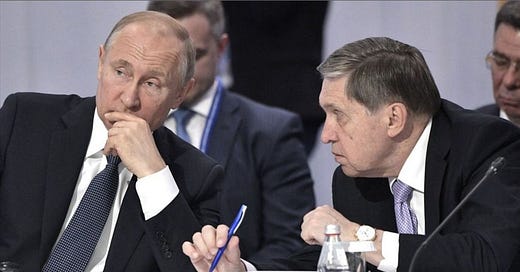




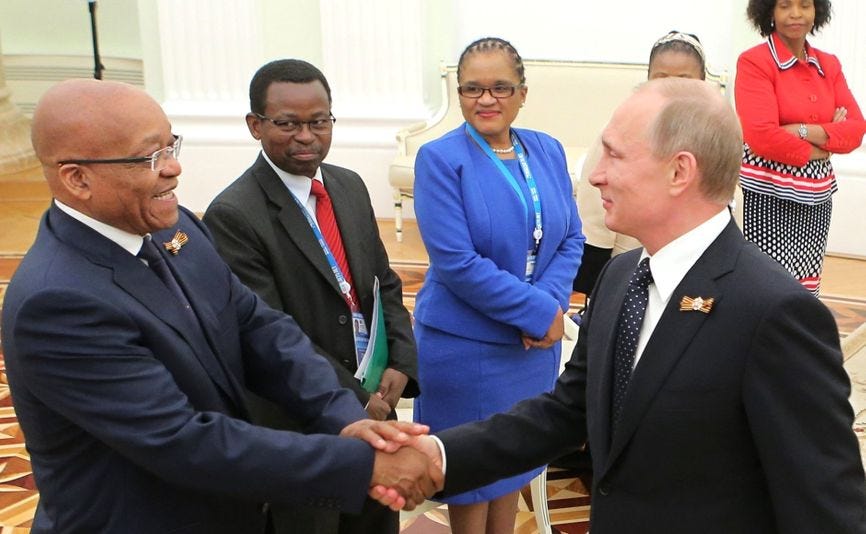
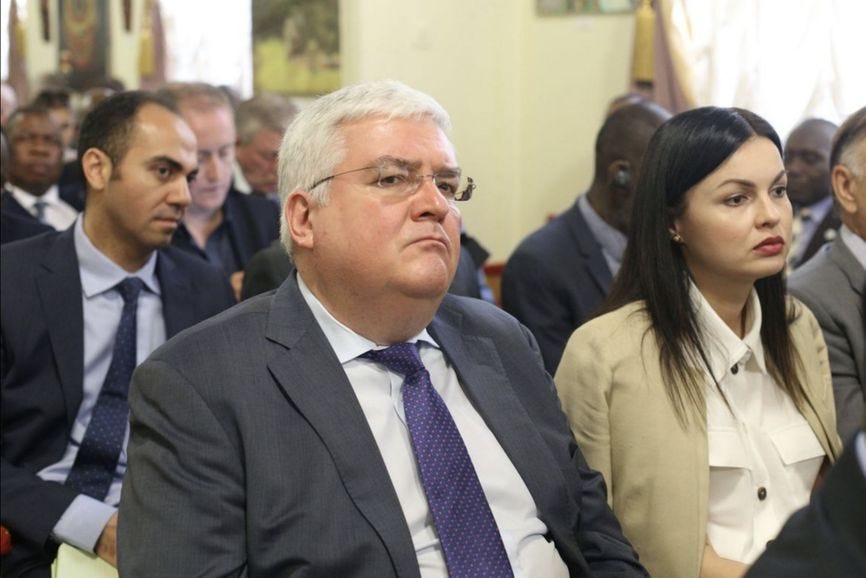


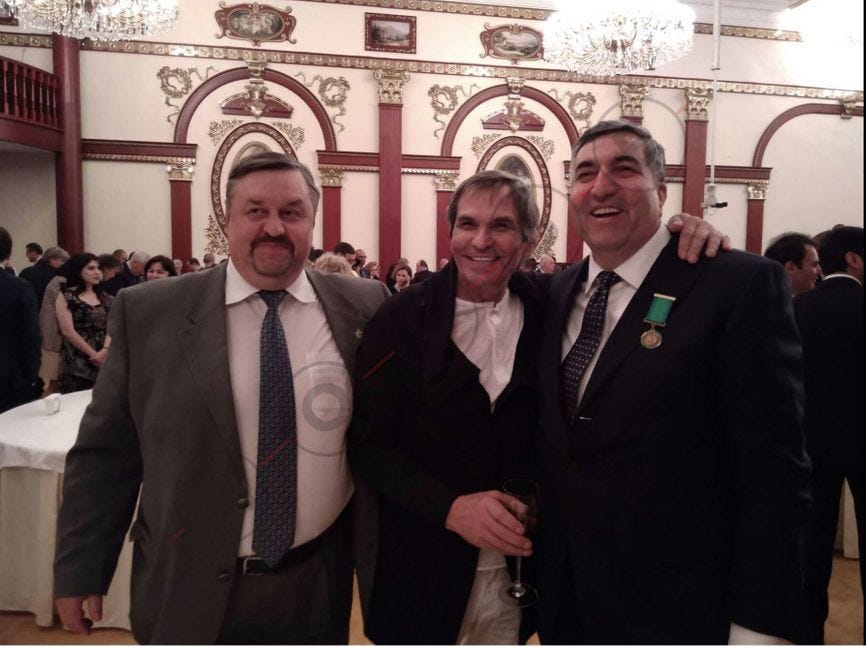
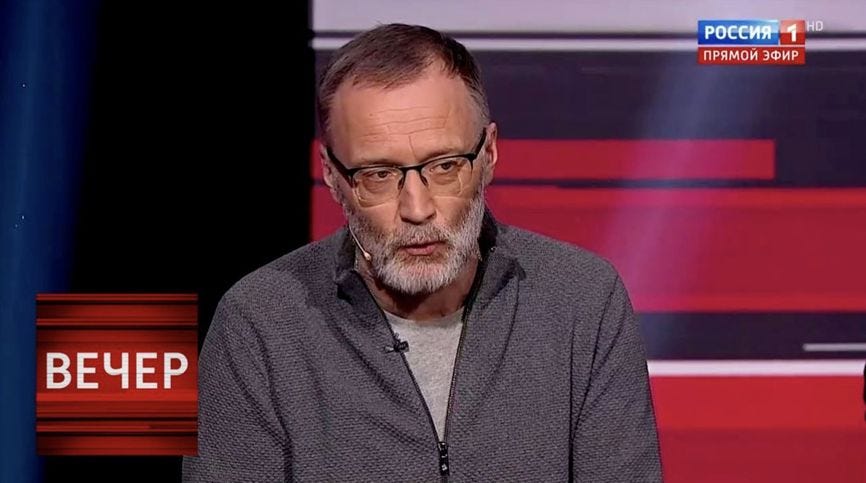

It is good to get a discussion that at least promises to be more realistic than what we usually see in the West. Though I could not absorb all the information in one sitting, it is obviously much more thorough than most other "analysis" that I have been exposed to.
The "Deep State," its true identity and purpose, has been a neglected subject for thousands of years. After getting the word from my teacher (Hubbard) that something of the sort existed, I have been hard pressed to find any reliable details. I have resorted to the work of a group of remote viewers (Farsight) to get some better idea what is going on. Their findings would be rejected by most "sensible" people. That does not include myself.
I am afraid I cannot afford another subscription at this time. There are at least three writers on Substack who I wish I had more access to, but my income is very limited and I would prefer to read and write in my old age rather than trying to do something that would make money.
looking at some of these personalities running the show it seems rather the continuation of the 90s set of noveau riche with all their vulgarity and looting mindset. they all want to drive their Western limos, send their kids to Western universities, live in utterly tasteless McMansions, collect Western watches and die to be accepted into the Western elite social circles. not quite the leadership Russia needs to emancipate and find its own path.